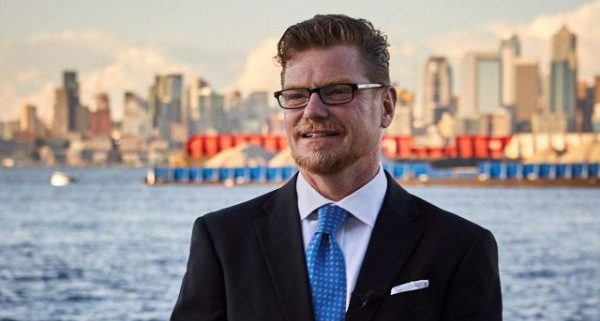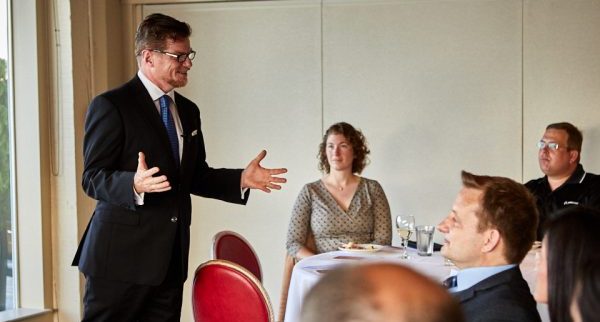
Twenty-one people are running to replace embattled Seattle Mayor Ed Murray, and already the local “conventional media” has arbitrarily decided there are six front runners, all of whom might be described as having come from central casting for parts in a remake of “The West Wing.”
They are all left-of-center, and one – Jenny Durkan – already has Murray’s endorsement.
But that leaves 15 other candidates, some of whom will be attending a Dark Horse Candidates’ forum later this week, and holding their own events. All of them are struggling to appeal to the same liberal voting bloc that the “top tier” is courting, except perhaps for one guy.
He’s Seattle native Greg Hamilton, an Iraq veteran, a small business operator and something of an agrarian entrepreneur with a domestic livestock project in its early stages on eight acres of undeveloped farmland in the lower Snoqualmie Valley near Carnation.
One important thing Hamilton has going for him is that he is not Durkan, or Jessyn Farrell, Bob Hasegawa, Mike McGinn, Cary Moon or Nikkita Oliver; all of whom have evidently been selected by the “conventional media” as the leading candidates.
Hamilton realizes he is up against long odds, but he’s been deployed to the Middle East. Running for office in Seattle probably comes in a distant second in terms of angst. Indeed, in a telephone conversation with Liberty Park Press, he seemed completely at ease.
Hamilton said the number one issue facing the city today is crime and public safety. The last four administrations have, he contended, made Seattle something of a magnet for homeless people and drug users. He estimated there are 5,000 to 8,000 people “on the margins who need help.” An equal number, he added, are “criminal vagrants living on our streets.”
There was media attention recently to the problems around the King County Courthouse, where people have been leaving human waste and contributing to what many feel is an unsafe environment. Under his administration, that would come to a halt.

He said the mayors and city councils over the past several years have essentially tied the hands of the police department. Hamilton believes in intervention rather than enabling the kind of behavior that has become the problem people don’t want to talk about.
“I went out with (people from) the Union Gospel Mission,” he recalled. “We gave people food and (clothing items) to about 150 people. Only one person wanted shelter.”
What surprised Hamilton most was that “none of them were from Seattle.” But they had gravitated to the city from somewhere else because something of a welcome mat has been displayed.
“A 700,000 citizen city can’t afford to provide services to a 7 million citizen state,” he reasoned.
Hamilton owns and operates Insights Training, a firearms training business that teaches shooting skills to a growing number of armed citizens. He’s been doing that for several years. This fact puts him far out of the herd in Seattle, where he believes past voting turnouts in primary elections just might give him an edge.
“It’s a question about how badly the extreme left splits their vote,” he observed. “There’s a chance that a candidate gets forward with 15 percent of the vote because Seattle has a low primary turnout…I think the vast majority of people don’t see any difference in the candidates.”
Conventional media, he said, is not paying much attention to candidates outside the six ordained to be the top tier. He’s gotten some attention from local talk radio, which has been helpful, but the designated gang of six seems to get, and split, the lion’s share of news coverage.
Is it fair? Probably not. Is it playing-favorites politics? Most likely.
What to do about it? Be like Hamilton. Declare up front in a political arena that seems to circle around itself that you are not riding that merry-go-round.
Hamilton’s campaign website says it all: SaveSeattle.org. If he can buck the odds and win, that is exactly what he intends to do.